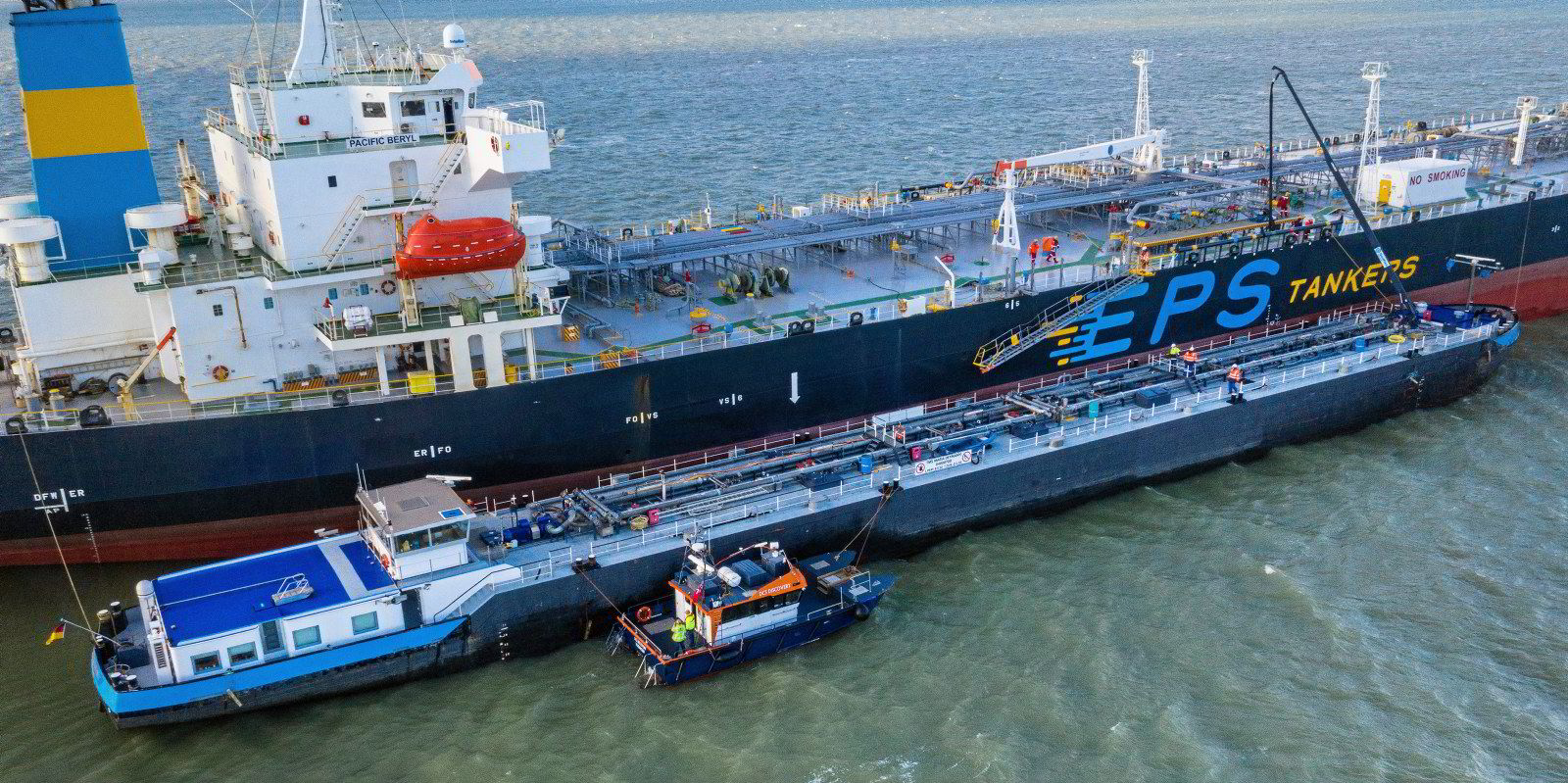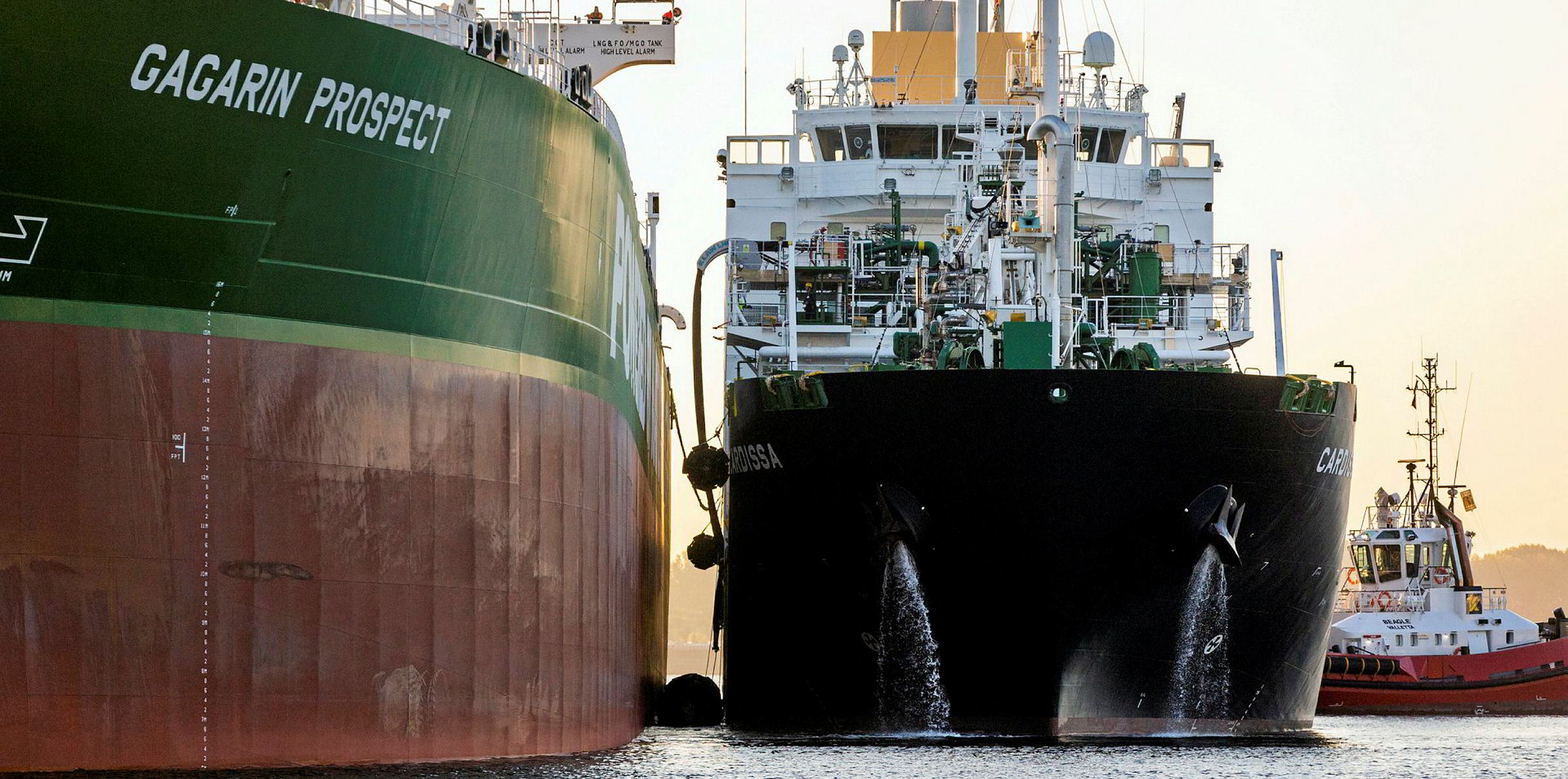Maritime Strategies International (MSI) says there is a “pressing” need to adjust the ship energy efficiency calculations used by banks under the Poseidon Principles.
The shipping research company has calculated how 21,000 vessels would rate under the Poseidon Principles’ Annual Efficiency Ratio (AER) trajectory, which is based on the International Maritime Organization’s decarbonisation targets.
The 27 signatories to the Poseidon Principles are using the trajectory to inform their ship investment decisions.
In running the figures, MSI has uncovered some anomalies in the AER formula. In one example, it found new, fuel-efficient 38,000-dwt bulkers typically have lower estimated AER values than older, less fuel-efficient 32,000-dwt vessels.
The consultancy explained that because a lower AER value is applied to the larger 35,000-dwt to 60,000-dwt category, some fuel-efficient 38,000-dwt vessels fall short of the required level.
MSI managing director Adam Kent said adjustments would need to be made to the calculation. He described the Poseidon Principles AER as a “work in progress”.
The consultancy is concerned because potential flaws in the calculation could have a negative impact on financing decisions.
“The ramifications of these findings are potentially far-reaching, skewing the provision of finance in favour of some vessel types, knocking on to decisions in the S&P [sale-and-purchase] markets, around newbuilding finance and shipyard preference for vessel contracts,” said MSI director Will Fray.
“A key plank of the principles is that they will adapt over time, but the MSI analysis demonstrates this need is pressing.”
MSI found that in 2020, more than more than half of the global fleet exceeded the Poseidon Principles’ AER trajectory value, with containerships exceeding it by a far larger degree than other sectors.
In dry bulk, the company found that more ships would fall out of compliance as the AER target is raised. Around 50% of the bulkers between 30,000 dwt and 40,000 dwt reached the required AER values in 2020, but that figure would drop to 22% in 2025.
As the industry moves towards decarbonisation, efficiency will have an increasing impact on ship valuation, Fray said.
MSI has now added the information on the ship efficiency performance of 21,000 ships to its asset valuation platform Horizon.
TradeWinds has requested comment from Poseidon Principles proponents for this story.
GMF executive team expands

In a separate development, Johannah Christensen has been appointed chief executive of the Global Maritime Forum (GMF), the international non-profit group that includes the Poseidon Principles among its initiatives.
Head of research Kasper Sogaard has been appointed managing director and head of institutional strategy and development. The appointments come amid an expansion of the executive management team.
“Johannah Christensen has been pivotal for the GMF’s results to date and I look forward to working together with her as the organisation’s chief executive officer,” said chairman Peter Stokes.







